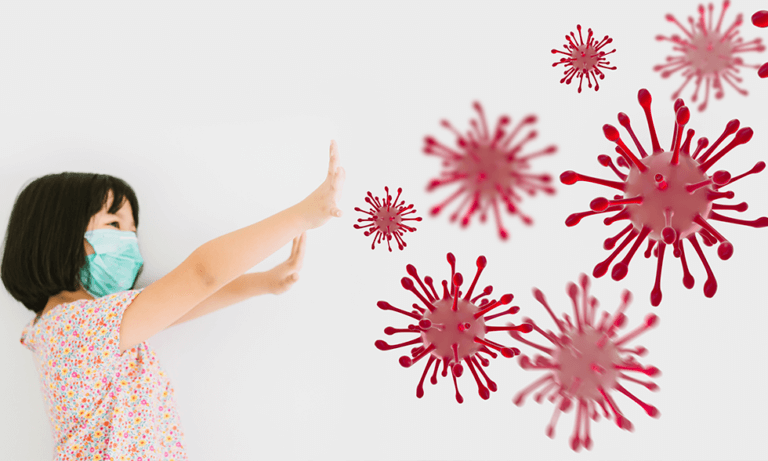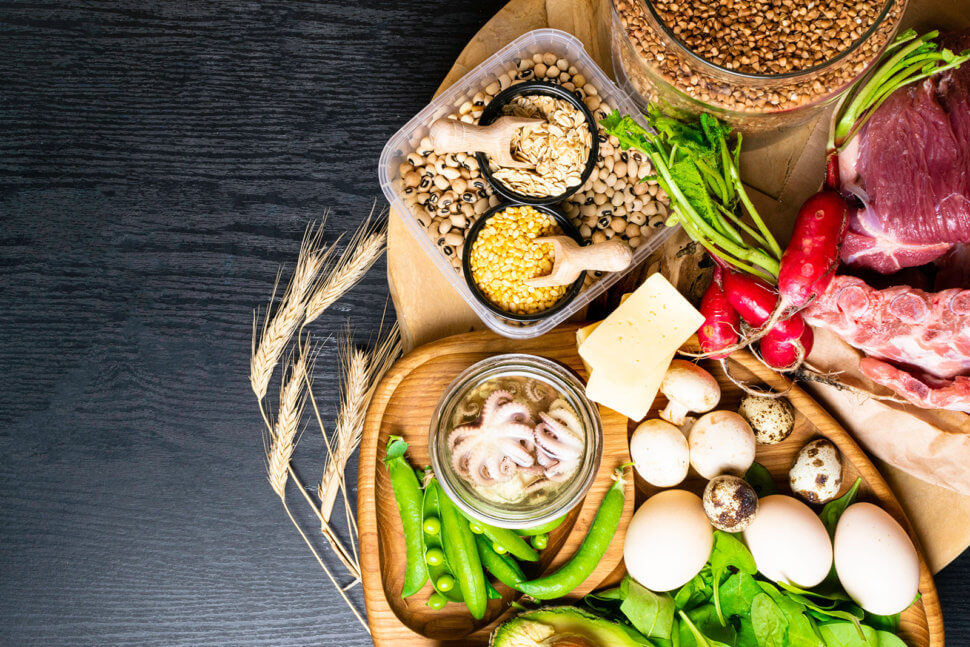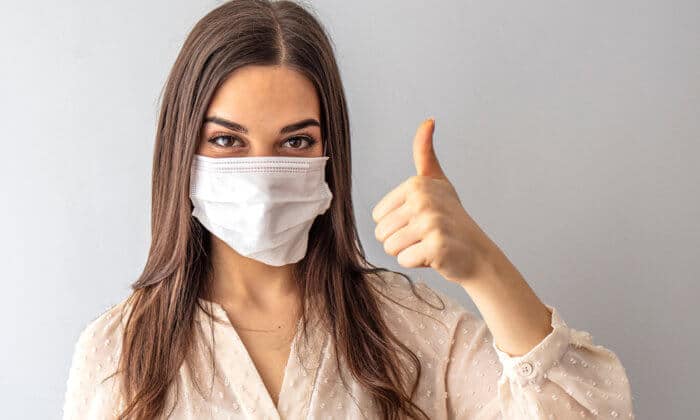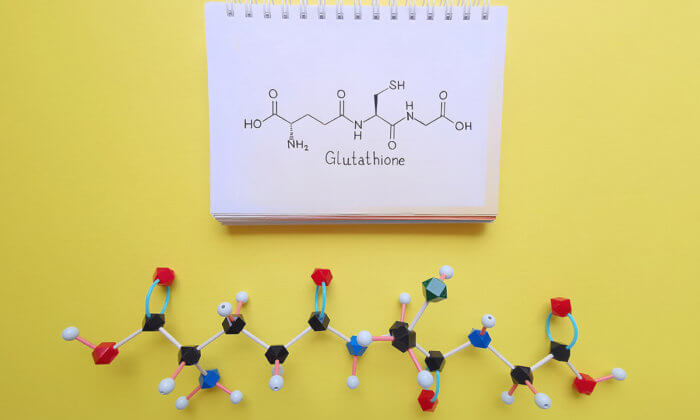The Most Effective Natural Supplements To Counteract COVID-19 Infection and Bend the Curve in Your Favor – Part II
In this part, you’ll learn the top 8 supplements to support viral immunity, improve disease tolerance, and counter the effects of COVID-19 if you get sick.
| | Reading Time: 10 minutes

Coronaviruses have been with us for a long time. And judging by the current trend, SARS-CoV-2 it’s here to stay. Over time, we’ll develop natural immune resistance. Then it would become a nuisance infection like the common cold or seasonal influenza. The worst case scenario is the virus mutates to become more contagious and more deadly, becoming an epic plague. We can’t determine the future, but we can act now to counteract COVID-19 infection and, should you get sick, bend the curve of illness in your favor.
One thing is sure: SARS-Cov-2 is now everywhere and is a severe infection. Cases are rising. No longer just in nursing homes and crowded cities, it’s in rural areas too. So, what should we do? The wise take it seriously and don’t wait until to get sick. They learn safe and effective natural ways to counteract COVID-19 now.
In the first part of this series, I discussed what’s ahead for the Pandemic this winter, outlined the difference between season influenza and COVID-19, and answered questions about vaccines’ benefits and risks. This article discusses ways to prevent infection and enhance viral immunity with immune-supportive nutritional supplements. I also list foods that benefit your immune system. And in Part III, I’ll teach you how to bend the COVID-19 curve in your favor with antioxidant supplements and natural antimicrobial medicines.
COVID-19 Treatment Update: An Expensive Lesson In What Doesn’t Work
As with most infectious viral illnesses, resilient natural immunity, or a vaccine is necessary to control further outbreaks. However, some are reluctant to get vaccinated. There’s a rush to get a vaccine out as soon as possible. This strategy may backfire and jeopardize future vaccine research and lower public confidence in the benefit of vaccination. No vaccine, for now, maybe better than a bad vaccine too soon.
Drug therapies haven’t done any better. Researchers summarized hospital experience and clinical studies in the WHO Solidarity Trial (October 15, 2020). They found that remdesivir, hydroxychloroquine, lopinavir, and interferon only or interferon plus lopinavir did not reduce deaths from COVID-19. Lopinavir is a repurposed HIV drug. Drugs that reduce stomach acid like famotidine and proton-pump inhibitors like Prilosec used to neutralize stomach acid in hospitalized patients may make them worse. And, there was no benefit from convalescent plasma.
Studies looking at antibiotics as a preventive treatment for potential secondary bacterial infections found antibiotics were overused and ineffective in preventing pneumonia. A study in Michigan found that only 3.5% of hospitalized patients had bacterial coinfections. So giving every COVID-19 patient an antibiotic increases the possibility of antibiotic resistance and doesn’t benefit patients.
Don’t wait for magic bullet cures from Big Pharma. Improve your chances of not getting sick and reduce the severity and length of sick time by supporting your body’s antiviral defenses.
The Phases of Infection
For effective control and treatment, it helps to know how the virus infects individuals and illness stages. Timely intervention makes a difference in how long you’re ill and may prevent hospitalization.
Daniel Griffin, MD Ph.D. of Columbia University, an infectious disease expert and regular guest on This Week in Virology, a podcast dedicated to all things viral, along with 30 health experts, developed a framework of the stages of infection. Dr. Griffin emphasizes the importance of treating COVID-19 in phases. Here’s my simplified version of the five phases and what you should do to bend the curve in your favor.
Phases of COVID-19 Management
| Phase | Name | What todo |
|---|---|---|
| Pahse 1 | Pre-Exposure | Avoid infection Take preventive supplements $amp; immune support |
| Phase 2 | Exposure | Self-quarantine Get Tested Increase dosage of preventive & immune supplements |
| Phase 3 | Symptom | Continue preventive & immune supplements Start next level supplements Take aspirin or natural blood thinners |
| Phase 4 | Inflammation | Continue Phase 3 supplements Continue aspirin or natural blood thinners Call your doctor |
| Phase 5 | Advanced Inflammation | Hospitalization |
- Phase 1 – Pre-exposure: Reduce your risk of getting sick by following safe practices like wearing a mask and washing your hands. Support immunity with a healthy diet and nutritional supplements. Improve the management of existing health conditions that increase your risk for severe illness from COVID-19, including asthma, high blood pressure, and metabolic diseases like type II diabetes.
- Phase 2 – Exposure: The incubation period is 2-14 days. Practice self-quarantine if you know or suspect exposure. Get tested. Monitor symptoms. Take your blood pressure and measure your oxygen saturation (SpO2). Increase the doses of the recommended immune-supportive supplements in this article. Take additional natural medicines with antioxidant and antimicrobial effects.
- Phase 3 – Symptoms: Signs and symptoms last 1-2 weeks. This phase is when the virus is replicating fast, and your immune system is responding hard. In this phase, your goal is proactive self-management to prevent severe illness and stay out of the hospital. Take the entire prescription of supplements recommended in Parts II and III of this series. Keep your blood thin with low dose aspirin, or natural supplements like vitamin E or Omega-3 fish oil, to prevent coagulation effects.
- Phase 4 – Early Inflammatory Period: This is the stage when your immune system aggressively goes after the virus by increasing inflammation and releasing hordes of immune fighting cells. But too many of these cells can cause a cytokine storm. Too many cytokines, like Interleukin-6, cause out-of-control tissue destruction. You need your doctor’s help during this stage.
- Phase 5 – Advanced Inflammation or Resolution: This is when your blood coagulates, your immune system fails, and your lungs fill with fluid. It’s this advanced, life-threatening phase that you need to avoid. Implementing early management of the first three phases helps prevent progressive inflammation. If you managed Phases 1-4 effectively, and your immune system is working well, you’ll begin to get better.
Though this model was designed for doctors managing hospitalized patients, it’s also helpful for you to understand the COVID-19 disease progression to prevent and manage symptoms if you get exposed and become sick.
How To Bend The COVID-19 Curve With Natural Medicine
Bending the COVID-19 curve is as crucial as flattening it and maybe the wiser strategy. This disease-modification approach improves the body’s immune terrain. And, should you get infected, it influences disease expression.
Janelle Ayres, an infectious disease researcher at the Salk Institute for Biological Studies in La Jolla, California, challenges the medical dogma that killing a virus is the best way to survive an infection. She advocates helping the body’s disease tolerance.
Antiviral drugs or boosting immunity aren’t the only ways your body manages infections. Having enough friendly bacteria, healthy metabolism, and managing stress make a difference in the outcome of infections. Rather than killing off viruses with the risk of adverse effects from antiviral drugs and the consequences of microorganism die-off, it bends the infection trajectory in your favor.
Start With Prevention And By Improving Immune Resilience With Nutrients
There are several natural ways to improve your viral immunity and reset your immune resilience. Some herbal antimicrobial compounds can dampen viral replication. Natural methods in the early phases may be just as effective as drug therapies.
8 Supplements to Improve Immune Resilience
| Supplement | preventive Daily Dosage | Treatment Dosagee |
|---|---|---|
| Zinc (piicolinate or gluconate) | 30 mg daily | 30 mg twice daily |
| Selenium (selenomelthioninee) | 200 mg daily | 200 mg daily twice |
| Vitamin E (d-alpha and mixed tocopherois) | 400 IU daily | 400 IU twice daily |
| Vitamin A (palmitatee or fish oil) | 10,000 IU daily | Up to 25,000 IU daily |
| Vitamin C (buffered ascorbic acid) | 500-1,00 mg daily | 1,500-6,000 mg daily |
| Quercetin | 200-500 mg daily | 500 mg twice daily |
| Vitamin D3 | 5,000 iU daily | 10,000 IU daily |
| Beta 1, 3-d Glucan | 500 mg daily | 1,00 mg twice daily |
The same strategy for seasonal cold and flu applies for COVID-19: take zinc, selenium, vitamin A, vitamin C, and vitamin D3. At the first sign of symptoms, or suspected contact, increase the dosage and frequency.
Research shows that zinc supplementation benefits patients with viral infections, including the common cold, chronic hepatitis C virus, HIV, and coronaviruses. Adequate zinc balance in lung tissue helps manage inflammation associated with interleukin 6 (IL-6) elevation found in COVID-19 and other acute viral infections. Zinc is also essential to preserve natural tissue barriers, like in the respiratory tract, preventing viruses from getting into the lungs in the first place. Zinc supplementation may play an essential role in preventing COVID-19 infection and controlling disease progression if you get infected.
Selenium deficiency is common, increasing the risk of viral infections, including COVID-19. Research suggests that patients with adequate selenium status are less likely to have severe symptoms or die from COVID-19. Selenium works best in concert with vitamin E.
Vitamin A protects the skin and tissue surfaces and assures mucosal lining integrity in the respiratory tract. It helps regulate viral immunity against influenza and may provide immune protection from COVID-19 infection.
Vitamin D3 plays an essential role in our immune function. It helps modulate the innate immune response to respiratory viruses, including influenza A and B, as well as COVID-19. Researchers found that calcitriol, an active form of vitamin D3, influences ACE-2 receptor status. ACE-2 is the cell receptor that facilitates SARS-CoV-2 entry into the lung. Vitamin D3 may play a protective role in COVID-19 prevention and reduce the severity of illness.
Vitamin C is an essential antioxidant and critical factor for viral immunity. Vitamin C supports lymphocyte function, increases interferon-α production, modulates inflammatory cytokines, improves endothelial function, and restores mitochondrial activity. It works best with quercetin.
Quercetin is a common flavonoid found in many edible plants and herbal medicines. Besides its antioxidant function, it has anti-inflammatory, antiviral, and immune-modulatory effects. It inhibits rhinoviruses, coxsackievirus, respiratory syncytial virus, and human herpes simplex virus. Supplementing with quercetin may inhibit the inflammatory cascade in the first weeks of COVID-19 infection and reduce blood clotting triggered by SARS-CoV-2.
Beta-glucans are naturally occurring immunomodulators. They are carbohydrates formed on the cell walls of yeast, fungi, seaweed, and grains. Dried medicinal mushrooms like Shitake and Chagas are rich sources of beta-glucan. They modulate immune activity by priming innate immune responses through interactions with pattern recognition receptors while increasing anti-inflammatory cytokines like IL-10. They improve the function of B-lymphocytes, natural killer cells, and suppressor T cells. Beta-glucan is considered a biological response modifier that enhances immunity against viral attacks.
Immune Supportive Foods
Shellfish, meat, and eggs contain the most zinc. Good vegetarian sources of zinc include pumpkin and other seeds and nuts, oats, peas, lentils, and whole grains. You’ll get selenium from whole grains, yogurt, animal meats, fish and shellfish, and Brazil nuts.

High Zinc-containing foods
Vitamin A is rich in beef and lamb liver and cod liver oil. It’s found in mackerel, tuna, and salmon. You’ll find some in feta and cream cheese. And a couple of hard-boiled eggs provide about 15 percent of the daily value (DV) of 900 mcg for adults. Vitamin D3 is in cod liver oil, canned herring, sardines, canned tuna, egg yolk, and edible mushrooms.
Vitamin C is abundant in rose hips and acerola cherries, hot chili peppers and sweet peppers, kale, and citrus fruit. Quercetin is an abundant antioxidant found in fruits and vegetables. You’ll get the most quercetin from onions, shallots, red apples, red grapes, broccoli and kale, red leaf lettuce, all types of berries, and in green and black tea.
Closing Thoughts
I want to be clear that I’m not promoting supplements as better than a safe and effective antiviral drug or vaccines. These are two different approaches. My purpose is to help you counteract COVID-19 and bend the curve in your favor by preventing severe infection, modifying the infectious process, and improving disease tolerance. If you become infected and get sick, my hope is that you’ll have a speedy recovery without chronic effects.
Conventional scientists and clinicians underappreciate the natural approach. However, the research is good and growing, and my clinical experience proves that professional grade supplements are safe and have immune supportive value. The goal of natural therapies is not to kill viruses but to prevent infection in the first place, influence the course of disease if you get exposed, and safeguard your life if you are hospitalized for severe illness. Natural medicines may also help prevent the long-haul, chronic effects of post-viral low-grade inflammation and autoimmunity.
“Viral Immunity is the ability of the immune system to prevent, defend against, neutralize, and eliminate viruses from the body.”
Viral Immunity, J. E. Williams
We’re still learning about COVID-19. Every week there’s new information, widespread medical practices that prove useless, and unrealistic expectations for something better that don’t measure up. Drugs have performed poorly in the original SARS epidemic and with COVID-19 exposing the weakness of modern medicine. Evidence-based, effective natural therapies can improve your viral immunity and improve your chances of beating COVID-19.
New viruses cause pandemics that spread everywhere if not stopped. In an infection naïve population, everyone is susceptible. The first wave, and sometimes the second, are the most severe and cause the most illness, including hospitalizations and deaths. The most vulnerable go first.
We’re still in the first wave of the SARS-CoV-2 Pandemic that’s had three surges. The current, third surge, is the worst so far. It comes as cooler fall weather drives people indoors, gathering together more and growing tired of wearing masks and cleaning their hands with alcohol sanitizers. Public health experts expect it to get worse in December and January.
Your goal is to prevent exposure by limiting your time at work or in public, wearing a mask when out, keeping at least 6 feet distance, and washing your hands in the pre-exposure period. However, from my clinical view, that’s the right way, but it’s not enough.
Of course, infection protection is primary. If you don’t get exposed, you won’t get sick. But reducing your vulnerability is central to preventing severe infection. And if you get sick, bending the curve in your favor will save your life and help avoid the long haul effects of chronic post-COVID disease, including chronic fatigue and autoimmune conditions.
To reduce vulnerability, assure healthy viral immunity. A resilient immune system is the most effective way to return to health if you get infected. See my blog on the thymus gland, the key organ for producing viable T-cells, the first line of defense against viruses. Also, check out my book, Viral Immunity, to learn more about viruses and to restore your immune function
Dr. Williams Advice:
- Your best bet for this fall and winter is maintaining public health guidelines: wear a mask, avoid crowds and close contact with others, and wash your hands.
- Increase your resilience with a healthy diet rich in antioxidants, get enough rest, practice moderate exercises, and keep hydrated.
- Take the immune-supportive supplements listed in the article.
- If you have symptoms and suspect coronavirus infection, get a rapid COVID-19 test. If it’s positive, stay home. If you’re not sure if it’s a cold or the flu, get LabCorp’s dual test for COVID-19 and influenza A/B with RSV.
- Call your doctor or go to Urgent Care if you have a high fever or symptoms worsen.
In Part III, look for updates on immune-supportive supplements and the current research on other natural antiviral products to beat the flu and prevent COVID-19.
More Information on Dr. Williams:
- For current patients and followers, order medical-grade supplements from Dr. Williams’ protocols on Wellevate or Fullscript.
- If you’re new to Dr. Williams’ content, sign up for Wellevate to order professional-grade supplements on your own and receive a complimentary discount on all orders.
- Check out his books Viral Immunity and Beating the Flu and articles about the coronavirus pandemic on Medium.
- Sign up for the next Q&A on natural health, where he teaches the key “how to” points from recent blogs on Instagram Live.

